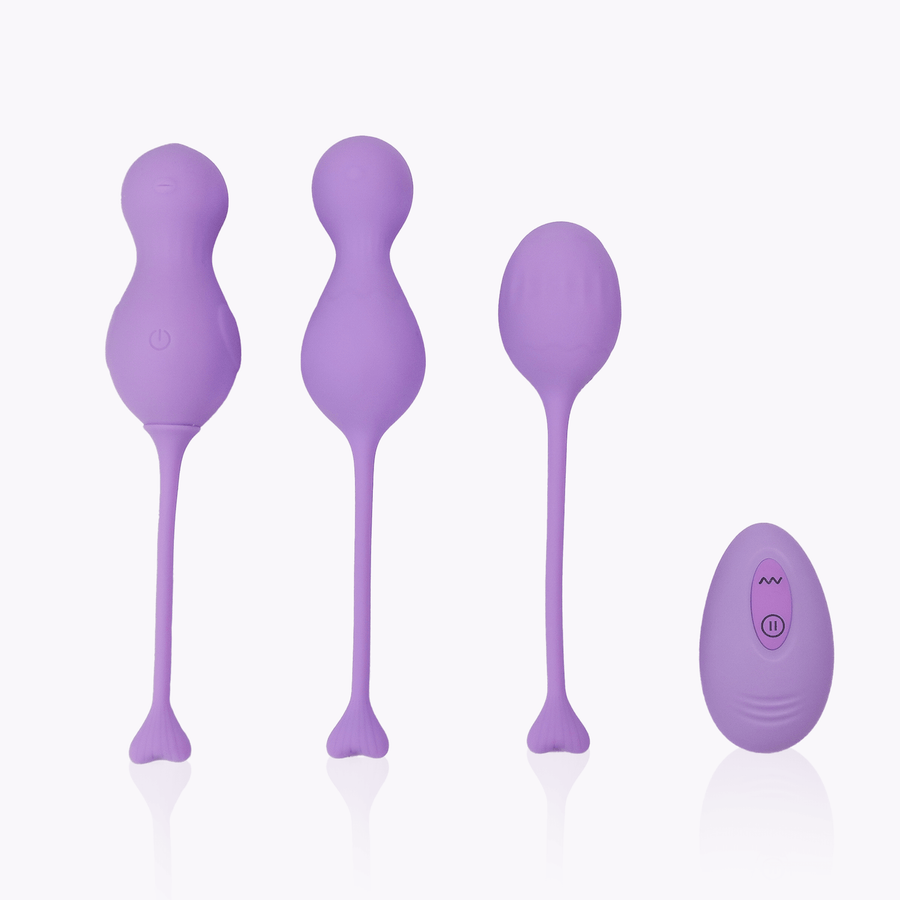How to Do Vaginal Cleaning
Why is Vaginal Hygiene and Health Important?
It is extremely important for women to take care of their vaginal hygiene in terms of sexual and general health. Cleaning the vaginal area reduces the risk of infection, protects against sexual disorders and helps maintain a healthy vaginal balance. In this article, the importance of vaginal hygiene and health will be discussed in impressive language and in detail.
1. Importance of Vaginal Hygiene:
Vaginal hygiene means keeping the vagina and its surroundings clean and healthy. Regular cleaning of the vaginal area prevents the proliferation of bacteria and microorganisms, thus reducing the risk of infection. Vaginal hygiene also prevents problems such as discomfort and bad odor in the genital area.
2. Vaginal Health and Natural Flora:
The vagina is a special area with a natural flora that cleans itself and balances it with bacteria. Maintaining this natural flora is an important part of vaginal health. Proper vaginal hygiene reduces the risk of vaginal infections and disorders by maintaining the balance of this natural flora.
3. Reducing the Risk of Vaginal Infection:
Poor hygiene conditions can increase the likelihood of vaginal infections. Fungal infections, bacterial vaginosis and other infections can be prevented by regular and proper vaginal hygiene. These infections can cause uncomfortable symptoms such as itching, burning, and foul odor.
4. Sexual Health and Relationships with Partners:
Ensuring vaginal hygiene is important for sexual health. A clean vaginal area during sexual intercourse with a partner ensures relaxation and a pleasant sexual experience. At the same time, a hygienic vaginal area prevents the transmission of sexual disorders and infections between partners.
5. Vaginal Hygiene Tips:
The vaginal area should be washed at least once a day with warm water and mild soap. Using perfumed and chemical-containing products should be avoided.
After going to the toilet, the vaginal area should be wiped from front to back to pre-clean. This prevents intestinal bacteria from infecting the vagina.
Tampons or pads should be changed at regular intervals and should not be used for excessively long periods of time.
Underwear should be made of cotton and breathable fabrics, should be changed frequently and washed at high temperatures.
In order to acquire hygienic toilet habits, the habit of going to the toilet regularly should be established.
After sexual intercourse, the vaginal area should be cleaned, but aggressive cleaning should be avoided. Using only warm water is sufficient.
As a result, vaginal hygiene and health are vital to women's sexual and overall health. Regular cleaning of the vaginal area reduces the risk of infection, maintains the balance of the natural vaginal flora and helps maintain sexual health. Correct and appropriate vaginal hygiene practices make women feel comfortable and safe and positively affect their sexual experiences.
Correct Vaginal Cleansing Methods and Products
Vaginal cleansing is an important issue to protect women's sexual health and reduce the risk of infection. However, improper cleaning of the vaginal area or the use of aggressive products can disrupt the balance of the natural vaginal flora and invite infections. Therefore, choosing the right vaginal cleaning methods and appropriate products is of great importance. In this article, we will discuss the correct vaginal cleaning methods and products in an impressive and comprehensive manner.
1. Cleaning with Warm Water and Mild Soap:
The vaginal area should be washed daily with warm water and mild soap. When it comes to soap selection, products that are odorless and provide pH balance should be preferred. Soaps containing perfumes and aggressive chemicals can disrupt the balance of vaginal flora and cause irritation. Using water and mild soap keeps the vaginal area clean and fresh.
2. Regular Toilet Habit:
Getting into the habit of going to the toilet regularly is important for vaginal cleansing. After using the toilet, the wiping method from front to back should be used. This prevents intestinal bacteria from infecting the vaginal area and reduces the risk of infection.
3. Preference for Cotton Underwear:
When choosing underwear, cotton and breathable fabrics should be preferred. Cotton underwear prevents moisture from accumulating in the vaginal area and reduces the risk of infection. At the same time, underwear should be changed frequently and washed at high temperatures.
4. Vaginal Cleaning After Toilet:
It is important to clean the vaginal area after going to the toilet, but this cleaning should not be aggressive. It is enough to use only warm water, cleansing should be done gently so as not to irritate the skin. Using products such as perfumed wipes or shower gels should be avoided.
5. Natural Vaginal Flora Support:
In order to maintain the balance of the natural flora of the vaginal area, products that provide natural vaginal flora support can be preferred. Gels or suppositories containing probiotics can reduce the risk of infection by supporting the health of the vaginal flora. However, it is important to get doctor's advice before using such products.
6. Things to Consider:
Perfumed products can cause irritation and allergic reactions in the vaginal area.
Intravaginal douching may increase the risk of infection by disrupting the vaginal pH balance and is not recommended.
As a result, choosing the right vaginal cleaning methods and products is important to protect women's sexual health and reduce the risk of infection. The vaginal area should be cleaned with warm water and mild soap, and aggressive chemicals and perfumed products should be avoided. Cotton underwear should be preferred and regular toilet habits should be acquired. At the same time, probiotic products that provide natural vaginal flora support can also be used to support vaginal health.
7. Use Probiotic Products:
Products containing probiotics can reduce the risk of infection by supporting the health of the vaginal flora. Gels or suppositories containing probiotics can help maintain the natural balance of vaginal flora. However, it is important to get doctor's advice before using such products.
8. Stress and Healthy Lifestyle:
Stress can weaken the immune system and increase the risk of infection. Adopting a healthy lifestyle, exercising regularly and eating a balanced diet can help protect against infections by increasing body resistance.
9. Consult Doctor's Advice:
If you have any problems or complaints regarding the vaginal area, it is important to seek help from a gynecologist. Your doctor can recommend appropriate vaginal cleaning methods and products for you. You can also get information from your doctor about probiotics or other products that will support your sexual health.
As a result, there are many important points to consider when cleaning the vagina. Mild soaps should be preferred to clean the vaginal area, internal vaginal cleaning should be avoided and the habit of going to the toilet regularly should be acquired. Using cotton underwear and paying attention to cleanliness after sexual intercourse are also important to protect vaginal health. If you have any questions or complaints, consulting your doctor is an important step to protect your sexual health.
What is Vaginal Douche and How Should It Be Applied Correctly?

Vaginal douching is a method of injecting water or other liquids into the vaginal area. However, gynecologists and experts recommend that vaginal douching should not be done. The vagina is a self-cleaning organ and it is not necessary to douche to maintain the balance of its natural flora. Additionally, vaginal douching can disrupt the balance of vaginal flora, increasing the risk of infection and causing irritation.
Why is Vaginal Douche Not Recommended?
Health experts do not recommend regular use of vaginal douching and recommend avoiding the practice for several reasons:
-
Vaginal Flora May Be Disturbed: Vaginal douche may disrupt the balance of vaginal flora. This natural balance is important in maintaining the health of the vagina.
-
May Increase Risk of Infection: Regular vaginal douching may increase the risk of yeast infections or bacterial vaginosis.
-
Vaginal Irritation: Vaginal douching can cause irritation of the vaginal area, which can create a greater risk of infection.
SOURCES AND REFERENCES
Harvard Health Publishing. (2019). The vaginal microbiome and vulvovaginal health. Harvard Medical School.
Nwokolo, N.C., & Boag, F.C. (2001). Chronic vulval pain: aetiology, morbidity and quality of life. Journal of Obstetrics & Gynaecology, 21(5), 527-531.
Sobel, J. D. (2007). Vulvovaginal candidosis. The Lancet, 369(9577), 1961-1971.
Bilardi, J.E., Walker, S., Temple-Smith, M., McNair, R., Mooney-Somers, J., Bellhouse, C., ... & Chen, MY (2013). The Burden of Bacterial Vaginosis: Women's Experience of the Physical, Emotional, Sexual and Social Impact of Living with Recurrent Bacterial Vaginosis. PloS one, 8(9), e74378.
















Leave a comment